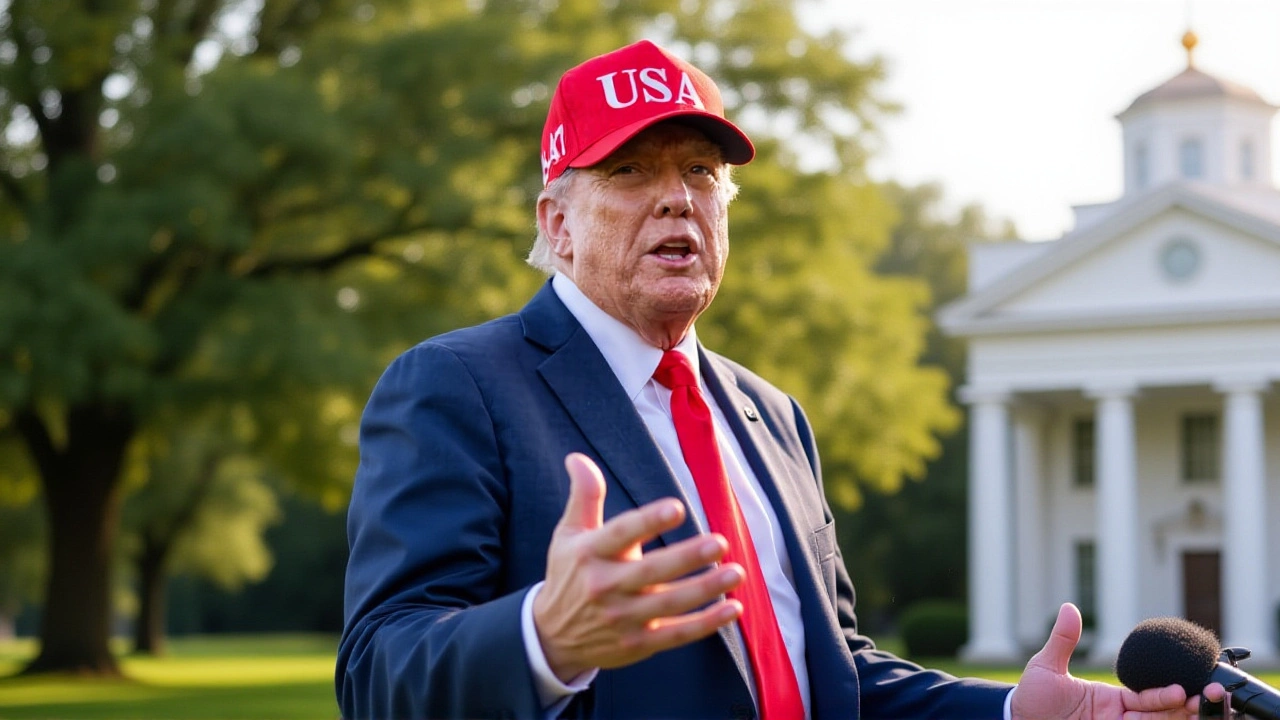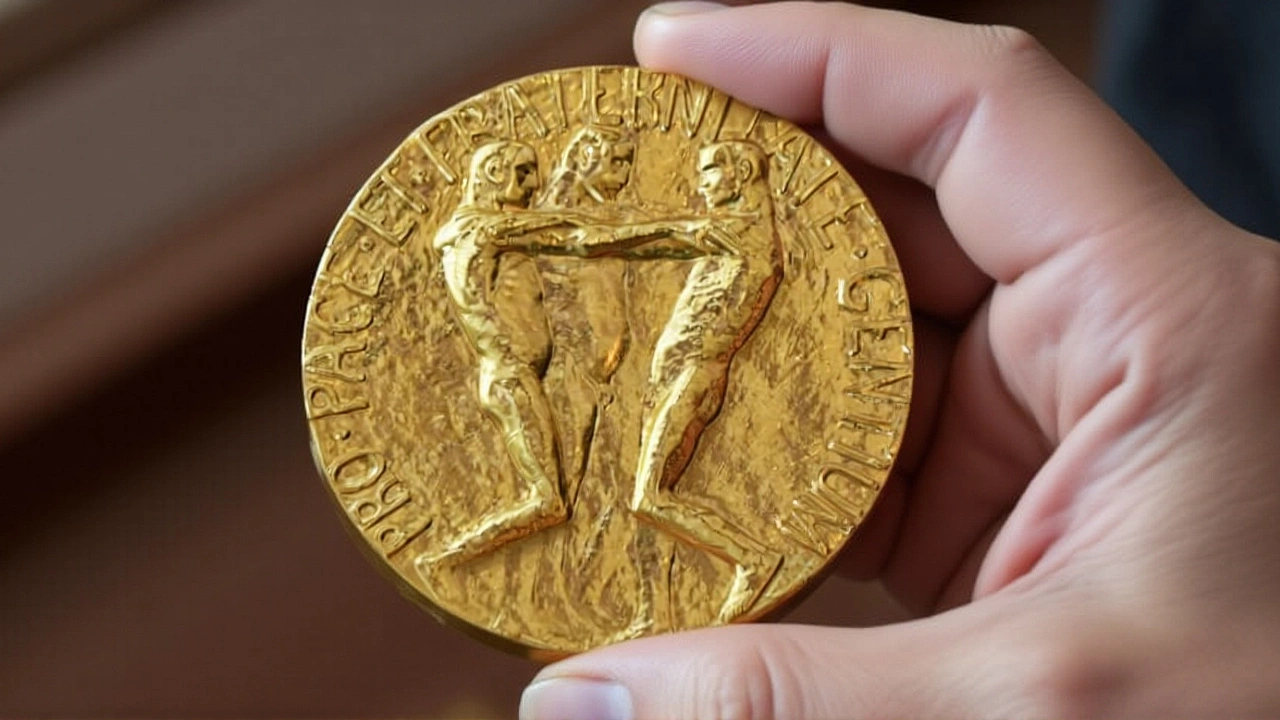When the Nobel Peace Prize 2025 Oslo is finally announced, the world will be looking back at an eight‑month marathon that whittled down 338 hopefuls to a single laureate.
The Norwegian Nobel Institute logged 244 individuals and 94 organizations in its February register – a noticeable jump from the 286 candidates last year, but still shy of the 2016 record of 376. The race begins every year on January 31, when the deadline for nominations closes, and ends with the Friday of the first full week of October, which lands on October 10, 2025.
How the nomination pool swells
Only a narrow band of "qualified nominators" may submit names. They include members of national parliaments, cabinet ministers, heads of state, judges from the International Court of Justice, members of the Permanent Court of Arbitration in The Hague, and even former Nobel laureates. University professors from fields as varied as history, law, philosophy, theology and social science also get a vote, alongside directors of peace‑research institutes and the board members of past winning organisations.
It sounds inclusive, but the list is deliberately exclusive – personal applications are barred and any nomination that doesn’t come from an authorised source is discarded outright. This gate‑keeping, overseen by the Norwegian Nobel Institute, ensures the prize remains a peer‑recognised honor rather than a popularity contest.
The five‑member committee’s anatomy
At the heart of the process sits the Norwegian Nobel Committee, appointed by the Norwegian Parliament (Stortinget). The committee’s five members, plus a secretarial staff, steer the evaluation from mid‑February through September. Their meetings are private, but the schedule is publicly known: a first plenary in late February, monthly briefings, and a final session the week before the October announcement.
“Our mandate is simple: identify the individual or organisation that has done the most or the best work for fraternity between nations, for the abolition or reduction of standing armies and for the holding and promotion of peace conferences,” said Anne Enger, a committee member since 2020. “We aim for consensus, but if the votes split, we fall back on a simple majority.”
Screening, short‑listing, and deeper dives
Once the nomination packets arrive in mid‑February, the committee commissions a cadre of Norwegian and international advisers. These advisers, chosen for their academic or diplomatic expertise, draft preliminary reports that land on the committee’s desk by the end of April.
The first big decision comes in early May: a short‑list of roughly twenty candidates is drawn up. Those on the list receive a deeper investigative dossier – background checks, impact assessments, and commentary from regional experts. By late June, the list shrinks to ten, then to five by mid‑August.
During the summer months, the advisers often go back to the field: they interview peace workers, parse NGO financial statements, and even travel to conflict zones to verify claims. The process is both scholarly and pragmatic – the committee wants hard data, not just lofty rhetoric.

Confidentiality: a 50‑year veil
Everything that happens behind those closed doors is locked away for half a century. The names of nominators, the identities of the nominees, and even the deliberation notes stay secret until 2075. This rule, enshrined in the Nobel statutes, is meant to protect the impartiality of the prize and shield nominees from political backlash.
“Transparency is a double‑edged sword,” noted Dr. Lars Jensen, a former adviser to the committee. “If people knew who was being considered, it could jeopardise their safety or the political negotiations they’re part of.”
Why the numbers matter
The jump to 338 candidates reflects a growing global appetite for peace work. The past decade has seen a surge in climate‑related activism, digital diplomacy, and grassroots reconciliation projects. Yet, the record‑setting 376 nominations in 2016 came after a wave of high‑profile conflicts in the Middle East, suggesting that turmoil often fuels nominations.
Statistically, individuals still dominate the pool (about 72 % of the total). Organizations, however, are punching above their weight – in 2023, an NGO won for the first time in a decade, prompting many to file nominations on its behalf.
What happens after the announcement
When the laureate steps onto the stage at Oslo City Hall on October 10, the impact is immediate. Past winners have seen a surge in funding, media attention, and policy influence. A 2020 study by the Peace Research Institute Oslo (PRIO) showed that Nobel laureates experience an average 45 % increase in grant applications within the following year.
Beyond the laureate, the mere act of nomination can boost an organisation’s credibility. Even the rumor of being in the running often opens doors with governments and donors.

Looking ahead: trends for the next decade
Experts predict the nomination pool will keep expanding as new forms of peace‑building emerge – think cyber‑conflict mediation, AI‑driven early‑warning systems, and cross‑border climate accords. The committee may need to adapt its evaluation tools, perhaps incorporating quantitative models alongside expert testimony.
“We’re already experimenting with scenario analysis to gauge long‑term impact,” Enger hinted, without revealing specifics. “The challenge is to stay true to Alfred Nobel’s vision while recognising how peace work evolves.”
Key takeaways
- 338 candidates (244 individuals, 94 organisations) are in the running for the 2025 Nobel Peace Prize.
- The nomination deadline is January 31; the award is announced October 10, 2025, in Oslo.
- The five‑member Norwegian Nobel Committee conducts a transparent yet confidential eight‑month review.
- Only authorised nominators – politicians, judges, academics and former laureates – may submit names.
- All details stay secret for 50 years to protect the integrity of the selection.
Frequently Asked Questions
How are individuals versus organisations weighted in the selection?
The committee evaluates each nominee on impact, sustainability and innovation, regardless of type. Historically, individuals have won about two‑thirds of the time, but recent years show a tilt toward organisations that demonstrate scalable peace‑building models.
Who is allowed to submit a nomination?
Only a defined group – national parliamentarians, cabinet ministers, heads of state, judges from the International Court of Justice, members of the Permanent Court of Arbitration, professors of relevant disciplines, directors of peace‑research institutes, former laureates and a few other distinguished bodies – can formally nominate.
Why are nominee names kept secret for 50 years?
Secrecy shields nominees from political retaliation and preserves the prize’s impartiality. It also prevents lobbying or media pressure that could sway the committee’s independent judgment.
What happens if the committee cannot reach consensus?
In the rare case of a deadlock, the decision moves to a simple majority vote among the five members. The outcome is final and cannot be appealed.
Will the 2025 laureate receive a cash award?
Yes. The Nobel Foundation announced that the 2025 prize will carry a cash award of 11 million Swedish kronor (about $1.1 million USD), to be shared if an organisation wins.
